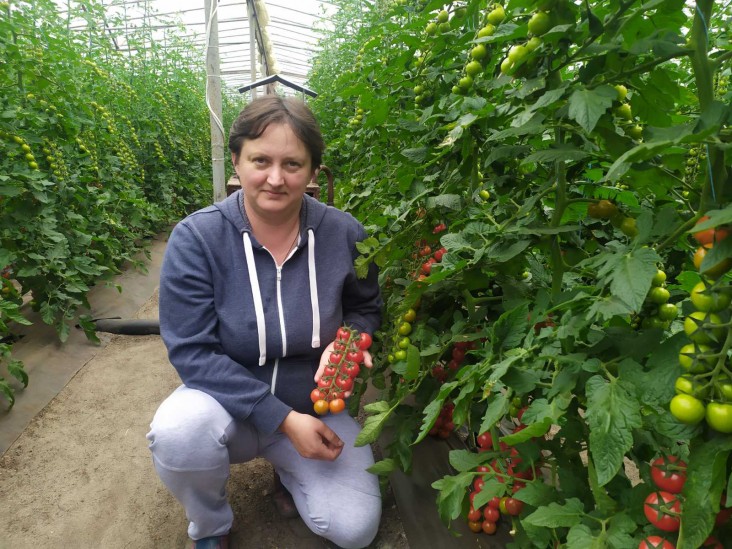Speeches Shim
USAID helps boost entrepreneurs in Ukraine
Marianna Neshcheret is president of the Ovochi Stanychnykiv Vegetable Cooperative in Stanytsia Luhanska in eastern Ukraine. She lives and works just three kilometers from the demarcation line between areas held by Ukraine government forces and the so-called DNR and LNR forces.

Life is full of ironic twists, perhaps more so in Ukraine.
I'm a lawyer who doesn't practice law. Circumstances have it that I am president of a vegetable cooperative in a conflict region. It is my true calling because what I and others do—providing food and an income—is crucial to the survival of our people.
And the good news is that despite the turmoil, we're succeeding after getting a leg up with some funding and strategic business counseling from USAID.
When the first major fighting occurred, people started to leave the region. We would have left as well, except for one important reason: our family—our parents, grandparents, and other relatives who couldn't leave for one reason or another. All our relatives are buried in a cemetery here. This is home.
So we had to decide what to do to survive. My grandmother said, "Well, you know, food is a basic need. No matter what happens, we can grow vegetables." In the beginning, we and others simply survived by exchanging the goods. We grew vegetables; our neighbors raised chickens, eggs, and livestock.
I left only when the fighting was really active. When I came back, it was scary to see what was happening here, because the houses, the cars, and the streets were destroyed.
I went into the greenhouse and just picked up a handful of soil in my hand and said, "How I missed you." At that moment, we decided that whatever it takes, whatever the conditions, we would wait out the moments of shelling in a safe place near our home. I don't wish living through this on anyone. At only four years old, my child could identify each weapon based on the sound it made when fired.
But we stayed, and people like us stayed. There were probably around 40 greenhouse holders who didn't leave.
We could grow vegetables under any condition, but the problem was distribution. Because of the fighting, nobody wanted to come to us. For two years, we had to throw away our harvests, feed it to the pigs. There were no buyers.
We thought the USAID project was just some kind of aid—that the humanitarian aid will spoil us, will make us less self-reliant, and will create arguments with one neighbor thinking he didn't get his fair share. But this program was different. It helped our business by addressing transportation of goods for distribution and bolstering our ability to sell to large retail markets far from the conflict zone. We now have grown to nearly 100 greenhouse households and have become more self-reliant. [Read about the project].
Could we grow the same crops in other places? Of course we could. But for us, this is our home, our land, our air, and our rivers.
It has been a significant boost for us to stand on our feet and, in essence, for us to help ourselves for today and into the future.

Comment
Make a general inquiry or suggest an improvement.